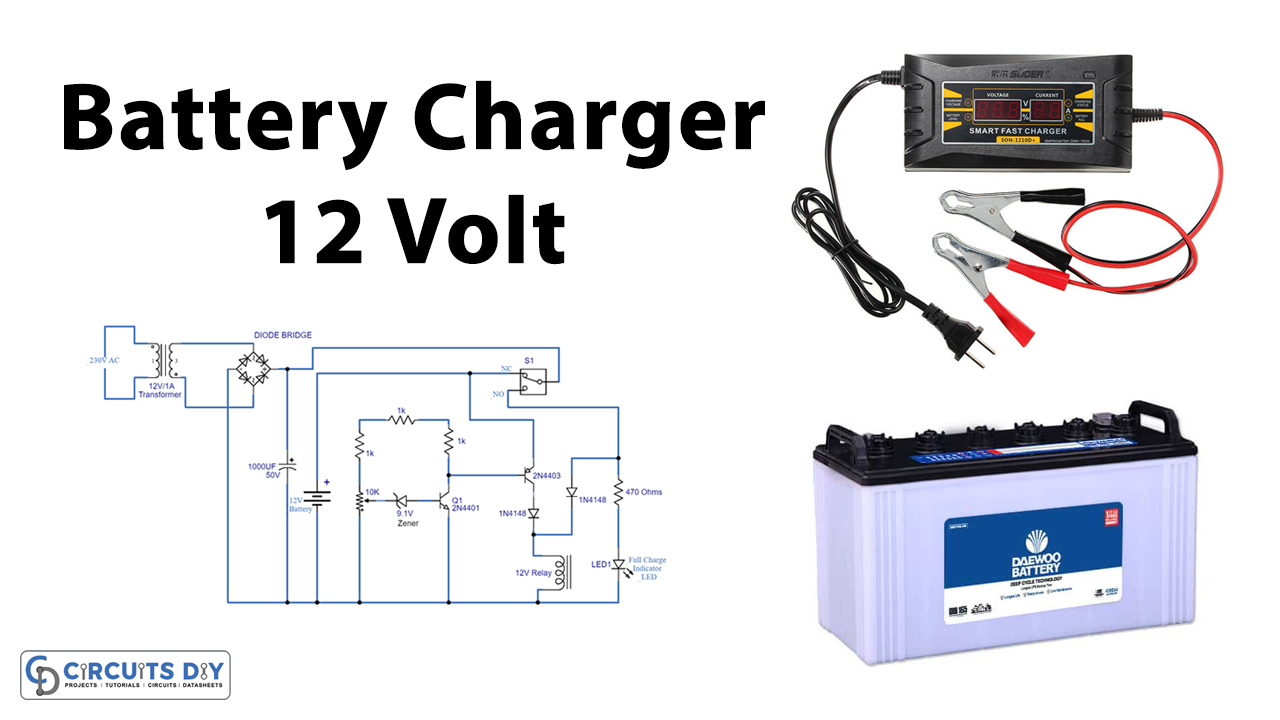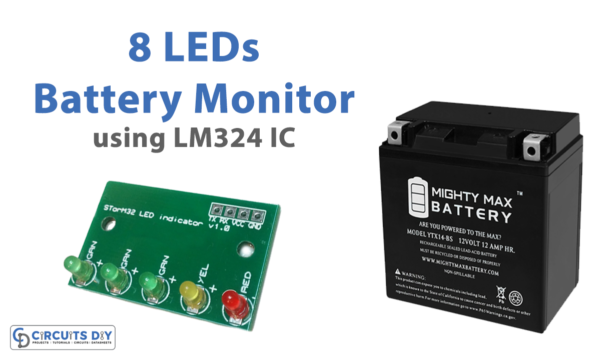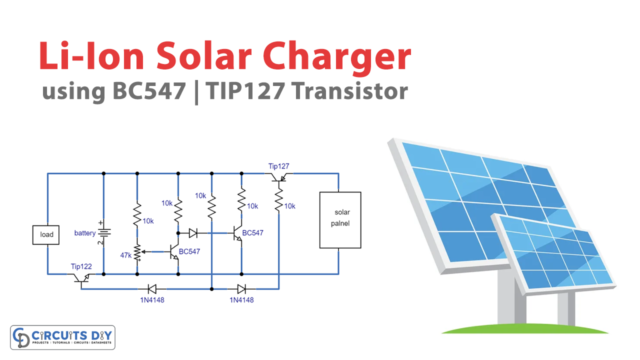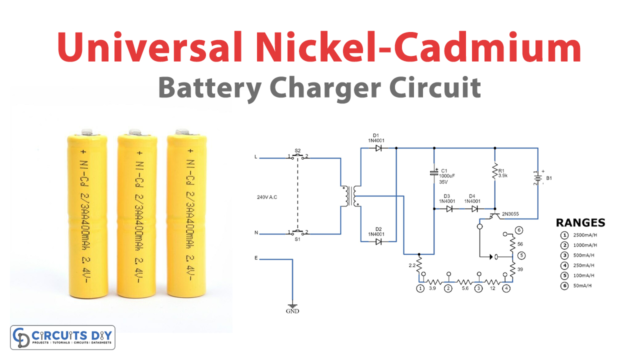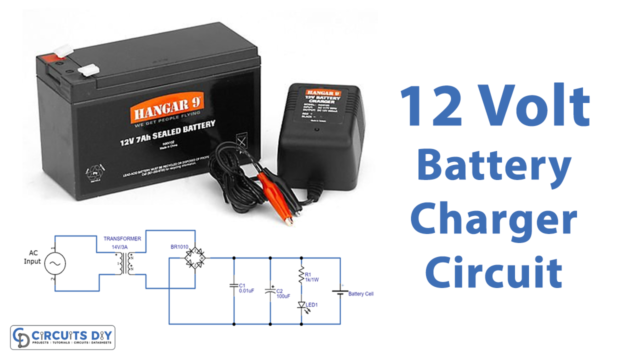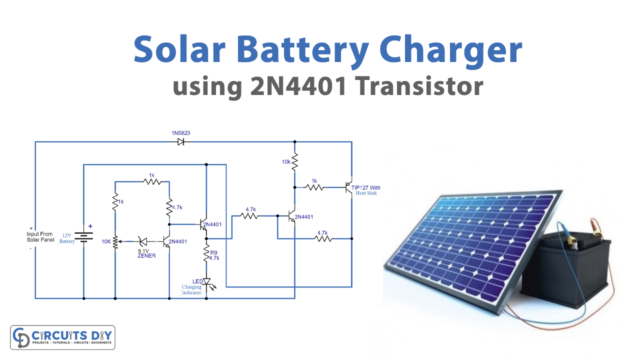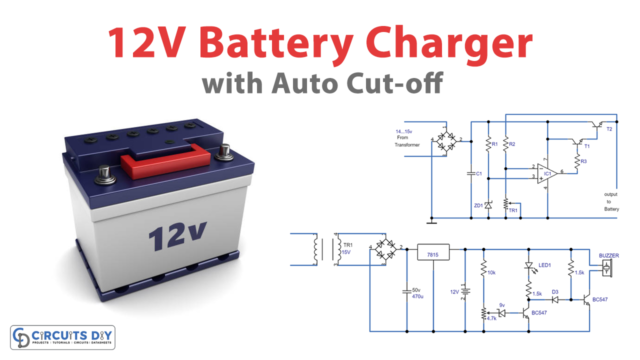In this tutorial, we are making a circuit of 12V & 6V Battery Charger With Auto Cut Off. This circuit can charge batteries of both 12 and 6V and automatically disconnects the battery from the charger circuit when it is fully charged. It is an easy, user-friendly, and inexpensive circuit that is using two transistors and a few other external components.
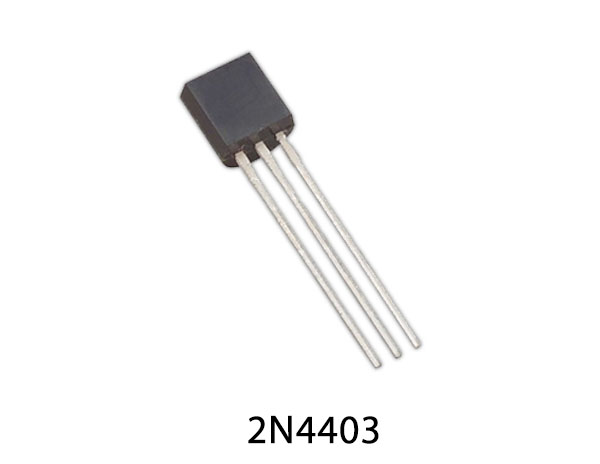
Hardware Components
The following components are required to make Battery Charger Circuit
| S.no | Component | Value | Qty |
|---|---|---|---|
| 1. | Transformer | 230V/12V 1A | 1 |
| 2. | Diodes for bridge rectifier | 1N4007 | 4 |
| 3. | Diode | 1N4148 | 2 |
| 4. | Zener diode | 9.1V | 1 |
| 5. | Capacitor | 1000µF/50V | 1 |
| 6. | Resistor | 1K, 10K, 470Ω | 1, 1, 1 |
| 7. | Transistor | 2N4401, 2N4403 | 1, 1 |
| 8. | Switch | – | 1 |
| 9. | Relay | 12V | 1 |
| 10. | LED | Green | 1 |
2N4403 Pinout
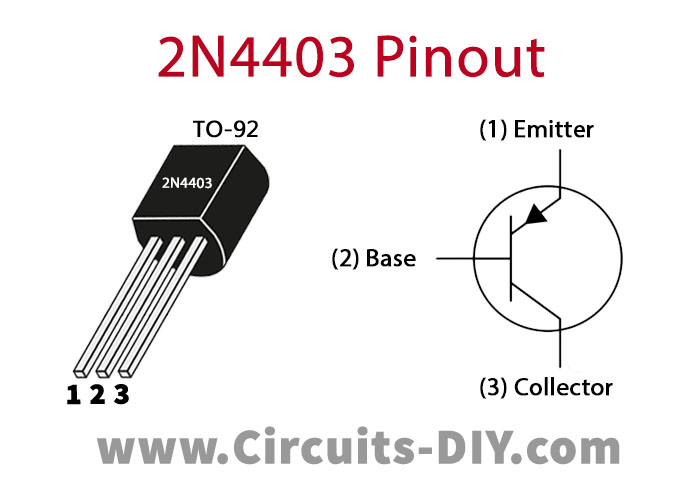
For a detailed description of pinout, dimension features, and specifications download the datasheet of 2N4403
Battery Charger Circuit
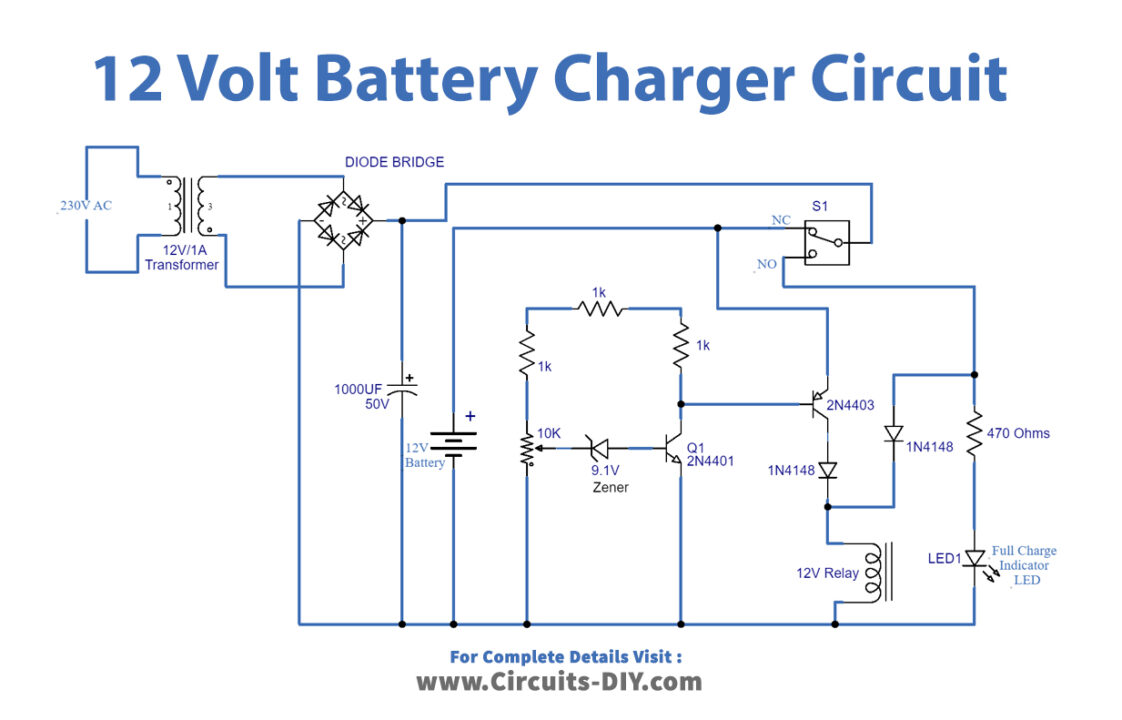
Working Explanation
The working of this circuit is simple. A transformer, bridge rectifier, and a capacitor are used to step down the voltage to the required 12V then convert and smooth the AC signal to DC. This voltage is now sent to the battery for charging. Transistors are used to detect the voltage of the battery. A Green LED is used for visual indication of a fully charged battery.
The circuit mentioned in the diagram is built to charge batteries of 12V but it can be adjusted to charge other batteries as well. Zener diode should be around half of the battery voltage.
Circuit Adjustments
- To adjust the circuit for 12V batteries replace the battery in the circuit with an adjustable power supply. A 12V battery shows 14.4V on DMM when fully charged, so set 14.4V on the power supply.
- Adjust the 10K variable resistor until the green LED glows.
- To adjust the circuit for 6V batteries, replace the Zener diode with a 3V Zener diode. Set 7.2V on the adjustable power supply because a fully charged 6V battery shows 7.2V on DMM. Now repeat the same process.
Applications and Uses
This can be used to charge lead acid or seal lead acid batteries with 6 and 12 volts.

